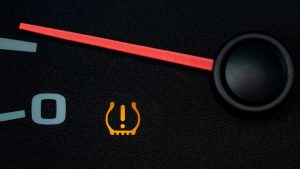OHIO — All this week, we’ve brought you stories about talking politics across Ohio through the efforts of Braver Angels.
What You Need To Know
- Debating issues can often devolve into shouting and personal attacks
- Students at University of Cincinnati agreed to discuss climate change using Braver Angels rules
- The sides didn’t change their stances, but they kept it civil due to the Braver Angels format
In this story, we show you some of what Braver Angels discussions look like. We asked student volunteers from the University of Cincinnati and their professor and Braver Angels member, Professor Eugene Rutz, to discuss four hot topics using Braver Angels rules.
These rules include: 1) listening first, then speak, 2) don’t try to change the other person’s mind, and 3) don’t assume group members all think the same.
We put students in red and blue teams. This example focuses on the issue of government regulation of climate change. Professor Rutz opened the debate by addressing the “red” team: “You know, the Supreme Court has ruled this year that some federal regulations aimed at reducing greenhouse gas emissions are unconstitutional. So, for you, why do you think this is a good idea?”
“Red” team member Jaden Walton, part of UC’s class of 2025, went first: “I’ve heard the argument of national security being brought up a lot. And as we are concerned, because climate change is a real thing, I don’t think that’s disputed. It is how it is being regulated by the government. I’d like to look to the example of Germany. They cut off their nuclear and coal plants and everything else like that to promote these renewable energies. They have Nord Stream One going through Russia and now Germany being completely reliant, energy reliant on Russia. They are now forced to purchase energy from a government that most of the world can agree is tyrannical.”
It was then “blue” team member Tanmay Srivastava, also part of UC’s class of 2025, time to respond: “What I thought about this ruling was that the government sometimes and the administration sometimes need to step in and put in a spark to pursue corporations and individuals in preventing climate change. We’ve seen this example in Europe and in Asia and many other countries around the world: governments had to step in and they created programs. They established treaties with individuals, with corporations, even other countries to prevent climate change.”
At this point, you might be thinking, “I have several good points to make in this conversation, and the speakers aren’t using them!” That’s true of a lot of our political talks. Remember, the students and Professor Rutz model a Braver Angels style discussion. The primary goal is to listen to understand the other side. Once we listen more, and show that respect, we’re in a better position to share our ideas on issues like climate change.
“Red” team member Alyssa Baker, of UC’s class of 2025, brought a new perspective to the discussion: “I would honestly like to change the direction of this topic and look into the affordability of things like the “Go Green.” Because I can speak on a personal level that I will purchase products that are recyclable, that I do my research into companies to make sure that I am supporting people who are doing that. But I also understand that not everyone has the financial flexibility to do as I am doing.”
Her colleague Walton picked up on the financial aspect: “I’ll invest in BP because they are not only providing current energy through oil to countries and people that need it to keep costs down. They are also investing in things like solid state batteries and renewable energies to be on the forefront of the future.”
This prompted “blue” team member MacKenzie Collett to acknowledge Walton’s view while presenting her own vantage point on corporations: “While it is good that there are companies that are taking those steps in action, the reality is that they’ve had years to do that. This climate discussion didn’t just start in 2020 or in 2019. It started a long time before that. And the reality is a lot of companies haven’t chosen to make that change because it’s not always the cheapest change for them. And so, if the government has to step in to encourage them to make it, I think it should.”
Her teammate, Srivastava, built on Collett’s point: “It comes to a full affordability. The government has the resources, financial resources that can provide individuals and companies to come to them and to also agreed by my colleague’s point here that corporations really sometimes will need these resources and interventions to just start off and then building up on that.”
Walton followed up by presenting the cost issue in a different light: “We are already $30 trillion in debt here in the United States. So, we do not have the financial resources. And if we were to raise that money, we would have to raise the debt ceiling or put that financial strain back on the taxpayer to foot that bill.”
This led to Collett doing the same: “Just because people in office who won’t be here in 10, 15, 20 years to face these consequences are choosing to think about now and not the future of our children doesn’t mean that we as voters have to do that as well.”
It was then time for Professor Rutz to draw the session to a close: “There’s a lot more we can say on this topic, and I hope we can get back to it, but we’ll stop there.”
You might see some of your views reflected in this debate. You may also think one speaker was “better” than another. Rather than a flaw of the exercise, however, the Braver Angels debate style in this climate change conversation reflects how we can have these discussions in real life. In the end, no one had their minds changed. But all four team members listened to each other give their heartfelt perspectives with judging, name calling, or shouting. This way of discussing politics may not be the norm, but it might be a “braver” style of hearing and learning from each other on the nation’s most pressing issues.




